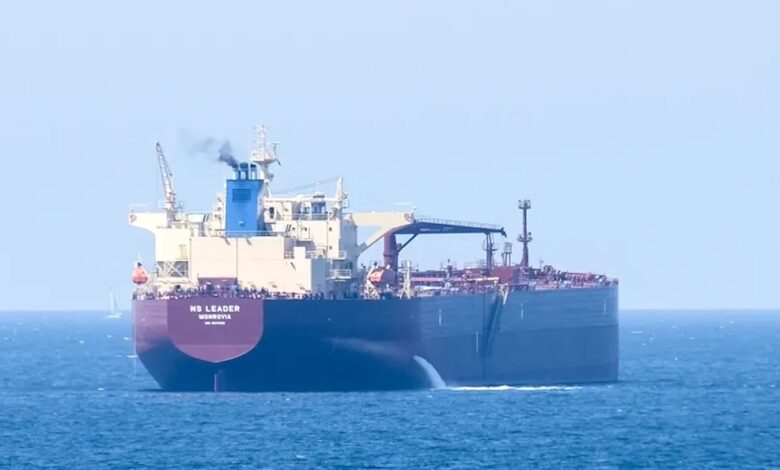Washington unveils further sanctions against Russian-linked tanker operators

The US Department of the Treasury’s Office of Foreign Assets Control (OFAC) took its second price cap enforcement action of 2024 yesterday, imposing sanctions on four entities and identifying one Gabon-flagged vessel as blocked property, the latest in a series of measures designed to hamper Russian oil exports.
The US is part of an international coalition of countries, including the G7, the European Union, and Australia, that have agreed to prohibit the import of crude oil and petroleum products of Russian oil. These countries have also agreed to restrict a broad range of services related to the maritime transport of Russian oil—unless that Russian oil is bought and sold at or below the specific price caps established by the coalition or is authorised by a license.
The price cap on Russian crude oil took effect in December 2022 with a cap set at $60 per barrel. OFAC has found that United Arab Emirates-based Zeenit Supply and Trading (Zeenit) sold Russian Urals crude oil in November 2023 that was priced at over $80 per barrel that it delivered using the NS Leader, a 2007-built aframax (pictured).
Zeenit and UAE-based Talassa Shipping have engaged in shipping multiple cargos together of crude oil of Russian Federation origin using vessels that loaded in Russian ports in 2023. Zeenit and Talassa share a business manager and were founded within roughly a week of one another in July 2022, according to OFAC.
Liberia-registered NS Leader Shipping Incorporated (NS Leader Shipping) is the registered owner of the NS Leader, which made five port calls in Russian ports in 2023 with OFAC stating yesterday that the government of Russia is the ultimate owner of the NS Leader.
UAE-based Oil Tankers SCF Mgmt has managed the NS Leader since September 2023, including during the November 2023 voyage during which the NS Leader carried above-cap crude oil of Russian Federation origin. Sanctioned Sun Ship Management previously managed the NS Leader from April 2022 to September 2023.
Oil Tankers SCF manages oil tankers beneficially owned by the government of Russia through Sovcomflot, Russia’s top state-owned shipping company.
Zeenit, Talassa, NS Leader Shipping, and Oil Tankers SCF were all sanctioned yesterday.
“Russia’s own top energy official admits that the coalition’s price cap and our sanctions have led to widening discounts on Russian oil, limiting the revenue the Kremlin relies on for its illegal war,” said under secretary of the treasury for terrorism and financial intelligence Brian Nelson. “Today’s action against vessels violating the price cap on Russian oil should serve as a continued warning that we can and will enforce violations of the cap.”
In December, the price cap coalition also tightened compliance rules for insurance firms and shipowners. This move will require service providers, including shipowners and movers of Russian oil, to receive attestations from their purchasers and sellers each time they lift or load Russian oil. It also requires insurance and freight firms to share these documents upon request with entities further down the supply chain.
“Whether Russia can continue to maintain its shadow fleet remains to be seen but it is not becoming easier,” pointed out a recent report from Arctic Securities, which also noted that the US is tightening compliance on Iran and Venezuela.
Craig Kennedy, who authors the well-researched Navigating Russia substack, detailed last month how Moscow’s shadow fleet has been running into sanction headwinds.
The recent campaign by price cap coalition countries to step up pressure on intermediaries in the shadow oil trade appears to be having an effect, Kennedy argued.
“The campaign has included a series of public enforcement actions against a small sampling of market players—shipowners, ship brokers and oil traders. It has also, reportedly, involved private overtures to a range of other entities—foreign banks, flag registries, insurers and the like—urging them to show greater diligence in their price-cap compliance,” Kennedy wrote.
In a podcast interview with NorthStandard, a P&I club, earlier this week, Olga Dimitrescu, head of engagement for the oil price cap at the UK’s Office of Financial Sanctions Implementation, said the coalition would likely “up the ante” on enforcement in the second quarter.
“What we want to do is force volumes back into the G7 fleet,” she said, adding: “One of the reasons why the price cap is so effective is because we have this prevalence of services provided by G7 service providers; it is difficult to make trades or gain significant market share without using G7 services at all. So this is why we’re talking to industry.”
The number of Greek-owned tankers hauling Russian crude fell to just eight in January, vessel tracking data compiled by Bloomberg shows. That’s down from more than 40 in May and about 20 through most of the second half of last year.
Greek owners had been one of the main haulers of Russian crude. One of the biggest buyers of the Russian commodity has been India in the past couple of years, but here too, change is afoot with India increasingly turning to Iraq for oil supplies.

Good, hit Puta -n where it hurts.